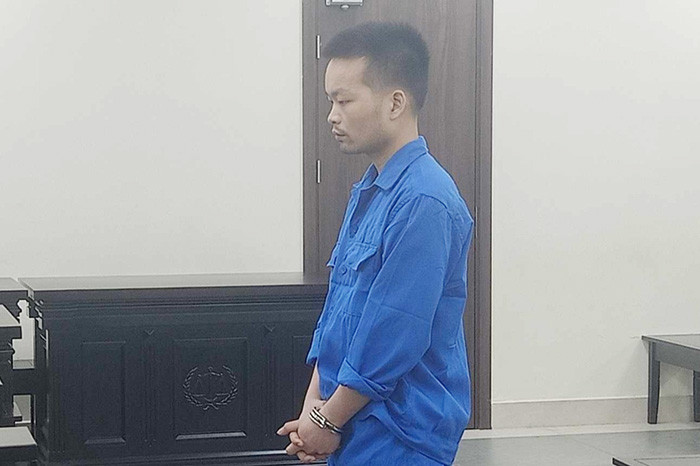Using extremely sophisticated tricks to appropriate billions of dong from VPBank, the defendant stated in court that Tho brought the money home to give to his wife to buy diapers and milk for their child.
On July 5, the Hanoi People's Court sentenced defendant Bui Duc Tho (born in 1992, in Hoa Binh) to 12 years in prison for fraud and property appropriation.
In July 2017, Tho started working at VPBank as a sales channel associate. In August 2017, the defendant quit his job. The accusation is that during his time as an associate at VPBank, Tho knew the process and procedures for opening credit cards for individual customers.
Therefore, when in need of money, the defendant took advantage of the bank's loopholes in opening credit cards (customers were not required to come to the bank to do the procedures), planning to create fake credit card opening documents to appropriate VPBank's money.
Around the end of 2017, the defendant went to residential areas, commune health stations, and primary schools in Kim Boi district, Hoa Binh, introducing himself as an employee of VPBank to implement a preferential credit card opening program for ethnic minorities in mountainous areas and health and education officials.

Defendant in court
This was done to collect personal information, household registration books, and identity cards of the above people. The defendant then used the above information to complete the credit card application.
Tho drafted a confirmation table of work units and salary income in the names of the workers, then went to primary schools and commune health stations in Kim Boi district, Hoa Binh to meet with the leaders of the above units to ask for confirmation signatures.
Because they trusted Tho to do the procedures and create credit card applications for their employees, as well as create conditions for other individuals to borrow capital for business, the leaders of some medical stations and schools signed and stamped the confirmation forms that Tho brought.
After obtaining the confirmation of personnel information and income at the above units, the defendant created a credit card application and transferred it to VPBank sales channel collaborators that Tho knew. Tin Tho, on the other hand, needed work quotas, so VPBank collaborators only compared the household registration book and identity card information with the confirmation of personnel information and income of customers without checking or verifying the place of work.
Seeing that the application was eligible to open a card, VPBank's collaborator forwarded the application to the system for submission to leaders at all levels for appraisal, approval, and issuance of credit cards according to regulations.
When issuing the card, VPBank notified the card delivery location to the phone number registered in the profile. These phone numbers were actively registered by Tho and recorded in the profile, so after receiving information from the bank, the defendant went to the post office to receive the card, activated it, then withdrew cash at locations and stores with automatic card payment machines (POS) or purchased goods at shopping centers that paid by card.
According to Tho's testimony, the defendant only deposited a small amount of money into the card accounts to maintain the minimum limit and hired someone to perform card expiration services to avoid detection by VPBank. When he was no longer able to pay, the defendant threw all the cards into the trash.
At the investigation agency, the individuals whose names were on the credit card application stated that they provided photocopies of their ID cards and household registration books or asked Tho to take photos of their ID cards and household registration books so that the defendant could apply for a credit card. After a while, Tho informed that he could not open the card because he did not meet the requirements. They did not know about the defendant's criminal behavior.
The indictment determined that from the end of 2017 to 2019, Tho created 34 fake credit card applications with a total outstanding balance of more than 2.1 billion VND. The defendant then activated these cards and withdrew a total of more than 1.9 billion VND from VPBank.
After discovering Tho's actions, VPBank sent a complaint to Hanoi Police requesting an investigation and handling. In court, Tho stated that he gave the embezzled money to his wife to buy diapers and milk for their child.
According to Vietnamnet